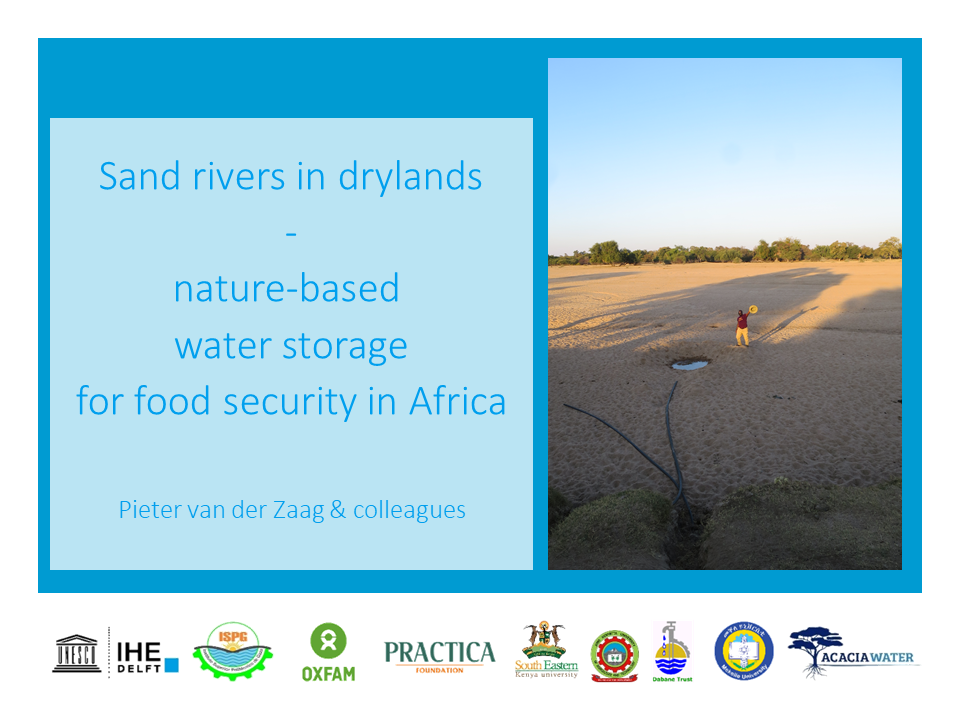Sustainable development of groundwater from nature based storage (NBS) for rural multi-purpose water supply
Section outline
-
Welcome to the online short course "Sustainable development of groundwater from nature based storage (NBS) for rural multi-purpose water supply", built with the support of NUFFIC. In this course we introduce the theory through recorded lectures and add quizzes and small exercises for personal assessment of progress and understanding. This serves as a basis for more practical field training that is essential to become a specialist in the field!
-
-
This topic (recording here) defines what (rural) livelihoods are and how water plays a role in these. Specific topics to be addressed include:
· Livelihoods: basic concepts and types and characteristics of livelihoods in the rural areas
· Role of water use in livelihoods, differentiating between large-scale, smallholder and homestead-based livelihoods, and rural dwellers
-
This topic (recording here) looks into the differences between demand, access and use of water. It starts by looking into typical water demands that derive from people’s livelihoods. It then looks into the definition of access. Then, different degrees in access and ways of quantifying that are presented, using the service levels. Thirdly it looks into actual use. In this, a differentiation will also be made in access to water resources and to water services. Finally, participants learn to analyse those factors that may lead to a difference between what people demand and what access they have. Specific issues that are looked into are:
· Difference in access to water resources and water services
· Gender and equity in access
· Design norms vs user needs
